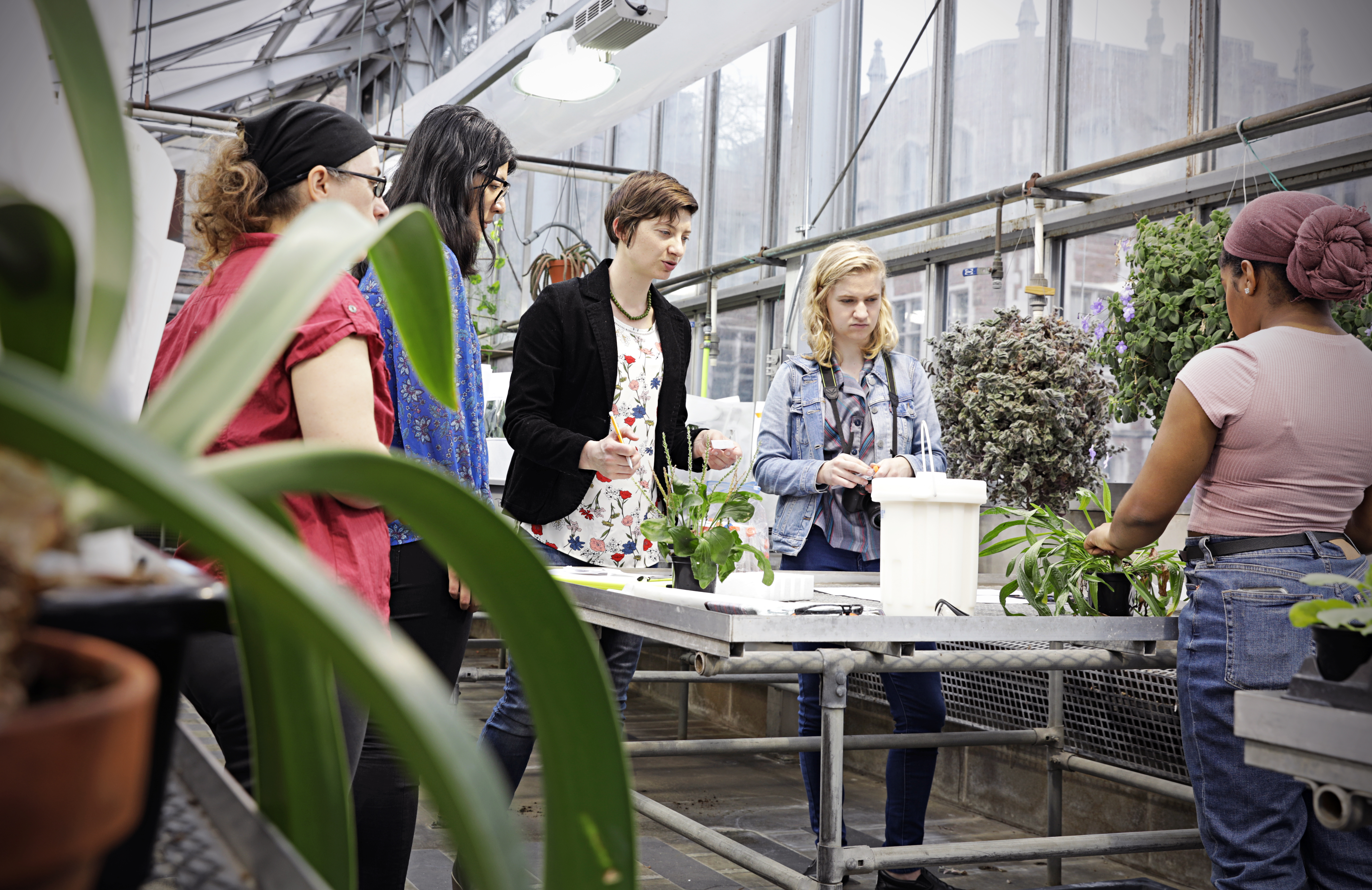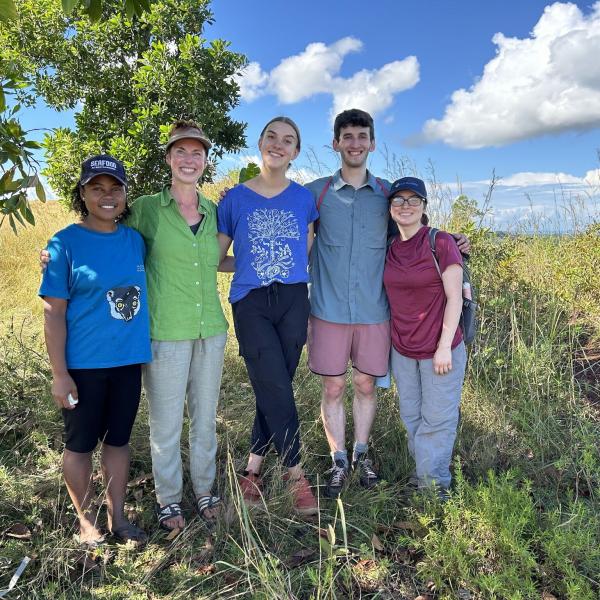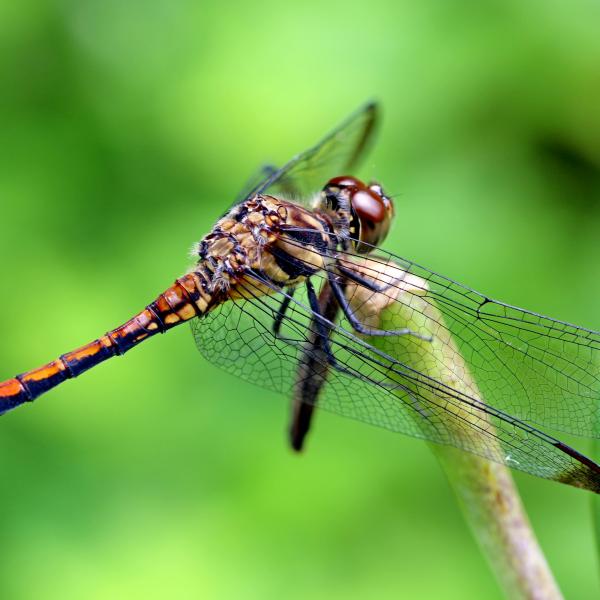Rachel Penczykowski, assistant professor in the Department of Biology, has won a prestigious National Science Foundation grant for early career faculty who excel at mentorship and research. The award will fund a project investigating infestations of a common plant pathogen in the St. Louis area.
Rachel Penczykowski, assistant professor in the Department of Biology, won a Faculty Early Career Development Program (CAREER) award from the National Science Foundation for her project “Climate and Connectivity as Drivers of Pathogen Dynamics Within and Between Urban Plant Populations.” The highly sought-after NSF award is reserved for junior faculty who excel at mentoring while successfully integrating research and education.

Penczykowski’s project will look at the factors that drive fungal infections on common broadleaf weeds called plantains (Plantago lanceolata and Plantago rugelii). The weeds themselves aren’t a valuable commodity—they often spring up in sidewalk cracks and unmaintained yards—but they can be a useful model for understanding the dynamics between plants and pathogens. The fungus, called powdery mildew, is important in its own right. “As a group, powdery mildews are significant plant pathogens of grains, grapes, and other crops,” Penczykowski explained.
By studying patches of plantains in a wide variety of local environments —including various St. Louis City and County parks, Tyson Research Center in Eureka, and the Shaw Nature Reserve in Gray Summit—Penczykowski hopes to understand the interplay of temperature, shade, genetics, and other factors to explain why some plants are infested and others aren’t. “In the last handful of years, we have documented earlier and larger epidemics of powdery mildew infection in more urban settings,” Penczykowski said. “We’re trying to understand why.”
St. Louis and other cities are “heat islands” that tend to be warmer than surrounding areas, and that extra warmth might be contributing to outbreaks of powdery mildew. Through mathematical modeling, experiments, and continued observations, Penczykowski hopes to understand how climate change might affect fungal infestations going forward. Warming temperatures could spur growth, but excessive heat might actually slow the fungus.
Penczykowski said she is “thrilled” by the CAREER award. Not only will it help fund her research into plants and their pathogens, it will also help support her outreach to students. Undergraduate students in her “Disease Ecology” course (biology and biomedical sciences 4195) will be working on some of the mathematical models at the core of the project. “Students in my class will learn how to use mathematical models to answer important questions about the spread of plant diseases in different types of environments,” Penczykowski said.
The award will also help her expand on an educational outreach program that her lab developed in partnership with the School District of University City. In this "PlantSTEM" program, elementary and middle school students will generate hypotheses and collect data on experiments set up in garden beds at their schools. “The curriculum materials we designed to accompany these experiments are tailored to each grade level, so that students can engage with the research in a way that is directly relevant to the learning objectives in their science classes,” Penczykowski said.
Through the Tyson Environmental Research Apprenticeship (TERA) program, Penczykowski's award will provide paid internships to select high school students who will work on the project with WashU undergraduate students, graduate students, and postdoctoral researchers. “We're very excited to offer local high school students these opportunities for paid participation in authentic research,” Penczykowski said.



